- Belgrave House, 77 High Street, Wroughton, Swindon, SN4 9JU
- info@matrixeyeclinic.com
- Call us on 01793 674666
There are a couple of retinal conditions that we can help you with at Matrix Eye Clinic
Retinal conditions can vary widely, but most of them cause visual symptoms. Retinal conditions can affect any part of your retina, a thin layer of tissue on the inside back wall of your eye. Untreated, some retinal conditions can cause severe vision loss or blindness.


Diabetes can affect your eye in a number of ways:
Diabetic retinopathy: this is a serious eye condition where the network of blood vessels supplying the retina become blocked or leak, causing vision loss.
Diabetic macula oedema: this involves the leakage of fluid and blood components into the macula. It causes severely blurred vision in the centre of the visual field.
Cataract: the lens inside your eye may also be affected, especially when diabetes is uncontrolled, resulting in blurring of vision which comes and goes over the day, depending on your blood sugar levels. A longer-term effect of diabetes is that the lens of your eye can go cloudy, this is called a cataract.
Unfortunately, one in two patients with diabetes are unaware they have the disease. If diabetes goes undetected and a patient’s blood sugar levels are uncontrolled, they may develop diabetic retinopathy and not be aware of the disease in their eye until vision loss occurs. Even patients who are aware of their diabetes may not notice problems with their vision until significant damage to their eye has occurred already. The key to reducing the chance of sight loss is early detection and commencement of treatment.
One in two cases of sight loss is caused by AMD.
Age related macular degeneration (AMD) is an eye condition which mainly affects people over the age of 50. It is estimated that one in every 10 people over the age of 65 has some degree of AMD. The disease attacks the macula of the eye, where our sharpest central vision occurs. Although it rarely results in complete blindness, it robs the individual of all but the outermost, peripheral vision, leaving only dim images or black holes at the centre of vision.
There are two types of AMD; Dry AMD and Wet AMD. Dry AMD progresses slowly and is the most common form of macular degeneration, affecting 90% of the people who have the condition. Dry AMD may progress into Wet AMD, which is a more advanced form of macular degeneration. Central vision loss is more rapid and causes severe vision impairment if left untreated.
Unfortunately, there is no cure for Wet or Dry AMD, however there are a number of treatment options available to slow the rapid progression of Wet AMD and there is some evidence to suggest certain dietary supplements may slow the progression of Dry AMD. However, early diagnosis and commencement of treatment or supplementation is required to minimise vision loss.
Get in touch with us to discuss the care you need and book an appointment
Matrix Eye Clinic is a premier private ophthalmology clinic located in the heart of Wiltshire. With over a decade of experience running private ophthalmology services in Swindon, we offer diagnoses and treatment for conditions such as: Cataract, Retinal Conditions, Glaucoma and Dry-Eye Syndrome.

Copyright © 2024 Matrix Eye Clinic. All rights reserved.
Dr Toms joined the Matrix Eye Clinic team in 2024 as a GMC registered Ophthalmologist with a special interest in nutritional ophthalmology.
Dr Toms has a strong background in functional and nutritional medicine and focusses on the relationship between the ocular surface and gut microbiomes to balance blood sugars and reduce inflammation in order to optimise ocular function.
At Matrix Eye Clinic, Dr Toms can consult on a wide range of eye conditions including ocular rosacea, dry eye disease, glaucoma, and ocular discomfort.
